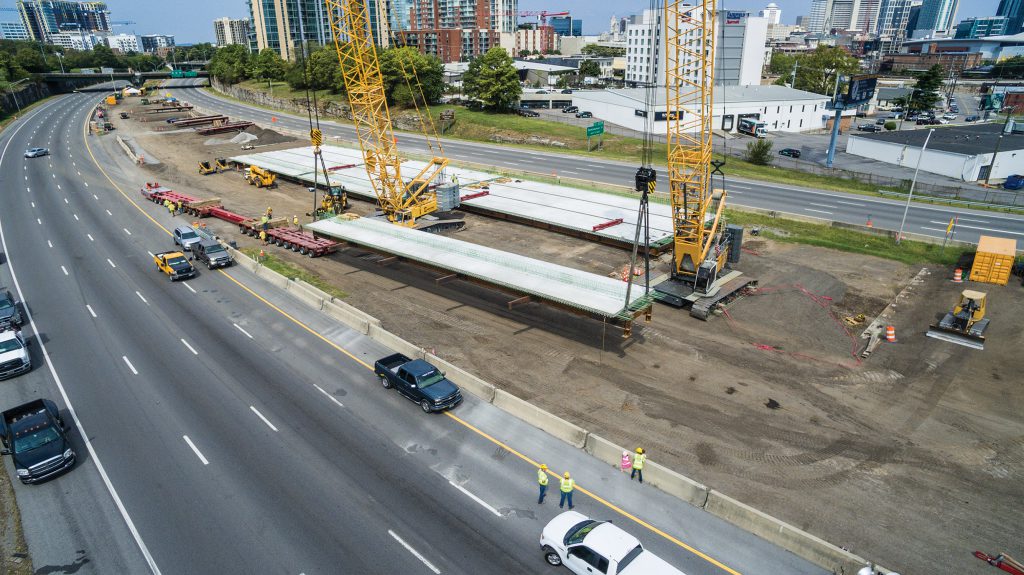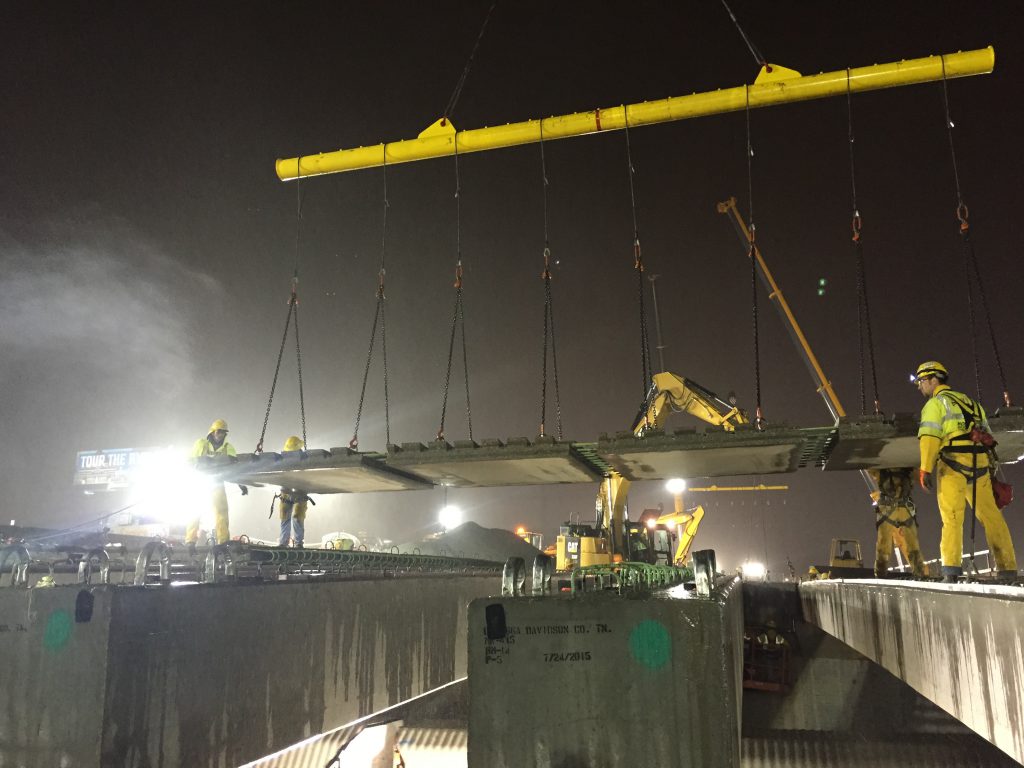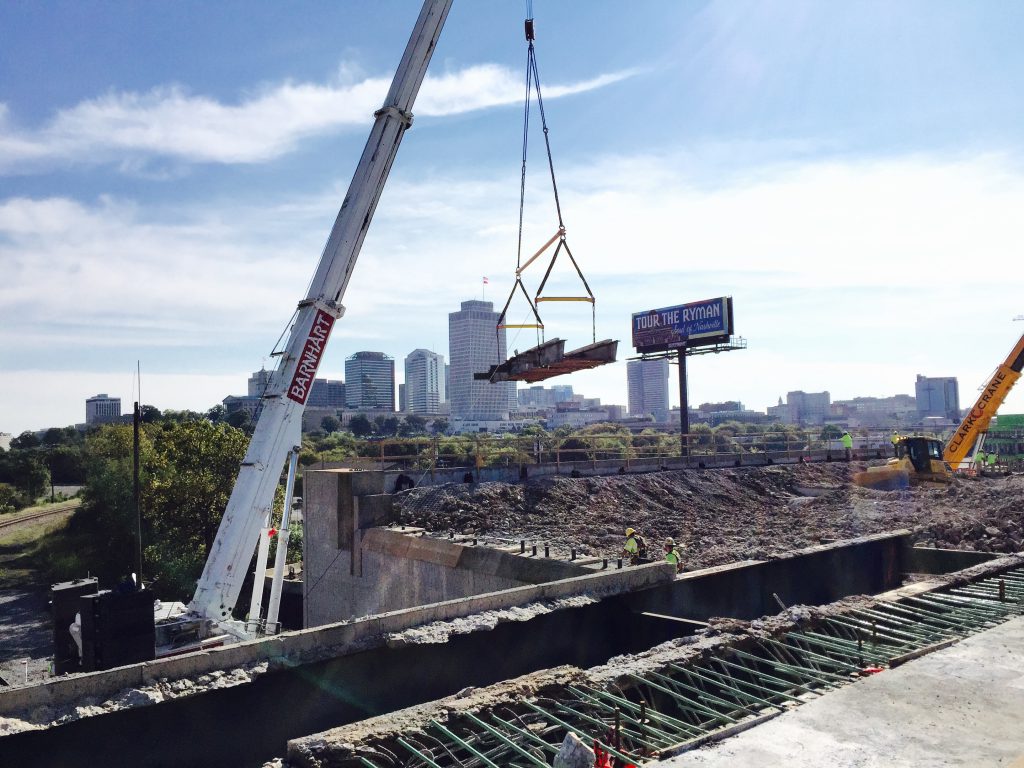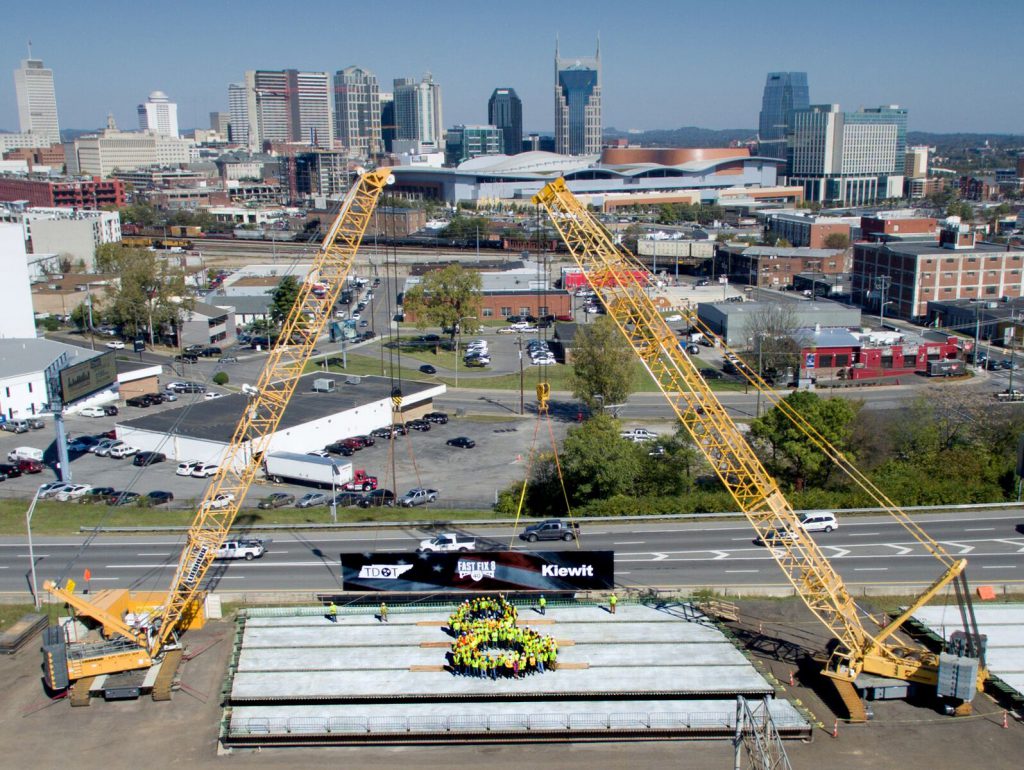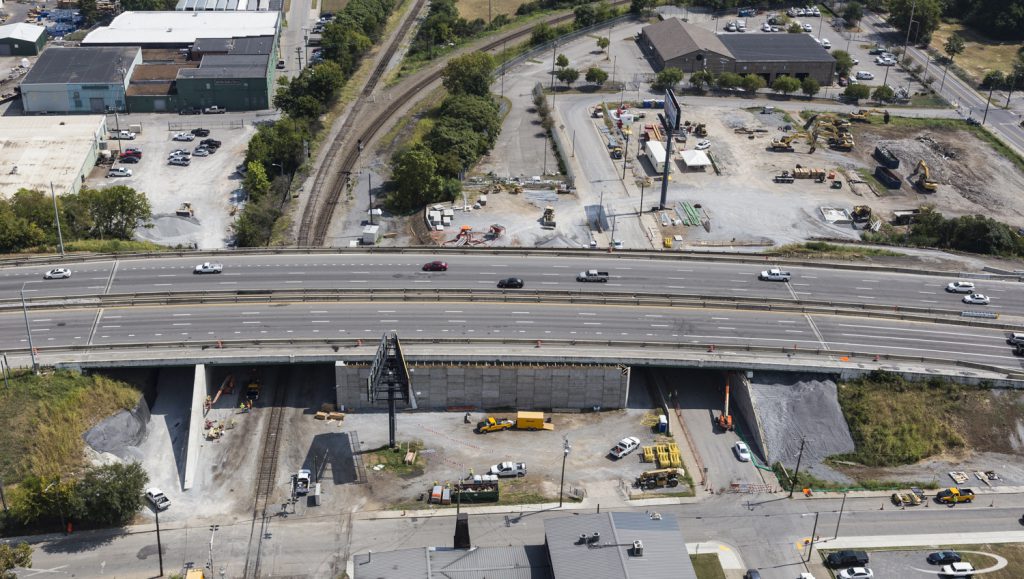By 1968, scores of country artists had crossed the stage to perform at Nashville’s Ryman Auditorium, home of the Grand Ole Opry.
For more than 30 years the venue hosted legends, including Hank Williams, Johnny Cash, Loretta Lynn and Willie Nelson.
That same year, four twin bridges — over Herman Street, Clinton Street, Jo Johnston Avenue and Charlotte Avenue — made their debut on Interstate 40, on the original loop around downtown Nashville.
But by 2015, unlike the music of those Opry performers, the structures hadn’t stood the test of time. They needed frequent maintenance, and patches and repairs were no longer an option. It was time to replace them.
More than a quick fix
Dubbed Fast Fix 8, the $62 million bridge rehabilitation project would be a high-profile job on a stretch of I-40 that sees 140,000 vehicles a day.
Figuring out how to replace all eight bridges without significantly disrupting the traffic flow was a top priority for the Tennessee Department of Transportation (TDOT).
“Because there are so many moving parts to the areas around the site, we needed to be able to get in and out as quickly as possible and minimize the impact, but without sacrificing the quality of the job,” said Will Reid, TDOT construction division director.
The job would require more than a quick fix; it also needed a team with experience, knowledge and the ability to think on its feet.
Kiewit was the right kind of seasoned performer for the project.
An early collaborator
Fast Fix 8 marked the first-ever CMGC project for TDOT and the State of Tennessee. Short for Construction Manager-General Contractor, the method helps increase the speed of delivery by involving the prospective contractor in the design process.
Early in the process, TDOT brought Kiewit in to collaborate.
“We showed up on day one and worked directly with TDOT to give our input on how we thought the job should be built,” Project Engineer Jake Heinz said.
Reid says he was impressed by Kiewit’s approach to the project from the beginning.
“I think that they approached this not as ‘you’re the owner, we’re the contractor,’ but as ‘we’re all one team.’ You could tell Kiewit made this project a priority and was invested in it. That was one of the reasons we selected them and it carried through the project.”
As easy as ABC
The foundation of the job was a construction method that’s become especially popular when working in urban areas such as Nashville.
Accelerated Bridge Construction, or ABC, requires short-term, complete road closures that allow access to the jobsite so crews can work around the clock.
By elevating each construction activity to a higher priority, this method not only speeds the total project time, but it also heightens work-zone safety for travelers and the construction team.
While that kind of schedule does inconvenience commuters for a short while, the method also allows construction to be completed in months instead of years.
In a city that’s home to popular tourist sites such as the Grand Ole Opry and the Ryman Auditorium, as well as the Tennessee Titans, the Predators, Sounds and Nashville Football Club, the need for speed was a given.
Initial plans set the number of weekend closures at 13 — each one compressed into 58-hour closures from 8 p.m. Friday to 6 a.m. Monday.
“We looked at our schedule and said, ‘whatever it takes, we’re going to make these dates,’” said Marc Rothwell, project manager. “Our team knew that, yeah, it’s going to be challenging. Yeah, there are going to be some rough weeks. But everybody was dedicated to making it happen.”
To keep that thought central in everyone’s mind, the project team used a well-known but appropriate slogan: “Failure is not an option.”
All hands on deck
Rothwell says working with the ABC model made for an inclusive and immersive experience for both veteran Kiewit employees and relatively new team members.
“We talk about building builders in our company. On this job, we needed an average of 200 people on the team every weekend. Many of our young engineers were working side-by-side with the crews. Our young engineers gaining experience by working with seasoned builders was one of the greatest aspects of this job.”
“Without the work of a lot of the staff, the project’s tight timelines wouldn’t have been met,” he added. “It was a phenomenal job by the entire team. Everybody jumped in and left their job titles at the door — it was all hands on deck during the weekend closures.”
Nothing but compliments
The team wrapped up its last bridge closure, Charlotte Avenue, in November 2015. The project was completed utilizing work during 10 weekends and was delivered seven months ahead of the anticipated deadline. With final paving and finishing done by the end of the year, the Kiewit team accomplished a feat that left commuters pleased and the client singing their praises.
“Some folks here want to know why we can’t do every project this fast,” Reid said with a chuckle. “There was a lot of homework done that led us to be able to deliver it using CMGC and on an accelerated schedule.
“We were truly working together toward a positive solution. I’m very impressed at the way Kiewit molded a team together to approach this job and I’m happy to be part of it.”
“The amount of planning and effort that went into each weekend was overwhelming,” added Red Jordan, TDOT district operations assistant and TDOT Fast Fix 8 project manager. “Kiewit came in with a game plan and followed it to the letter. I have nothing but compliments for them.”
This year, thousands of fans will make the trip to Music City to see the newest generation of performers. They may not notice the work that’s been done to improve their experience, but for the Kiewit team, Fast Fix 8 has a place in its own project hall of fame.
